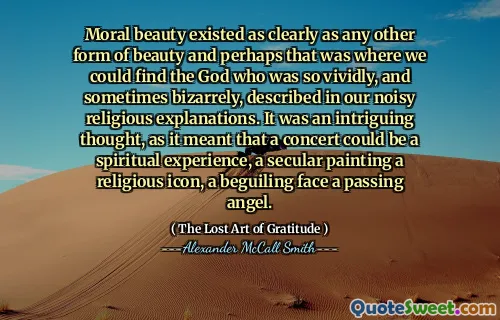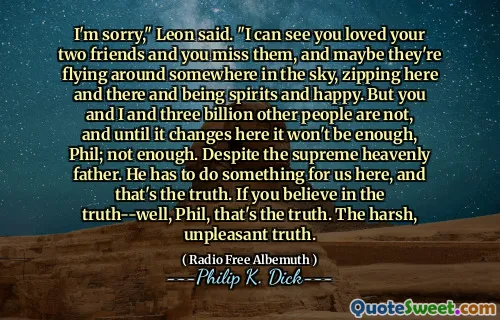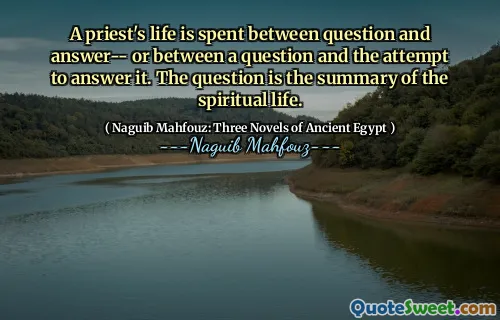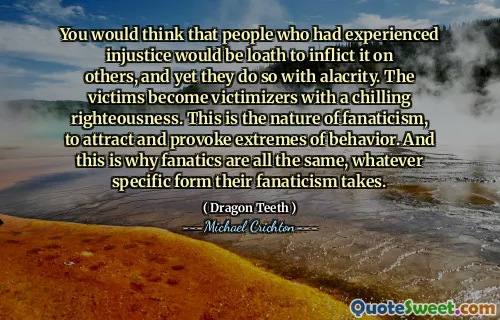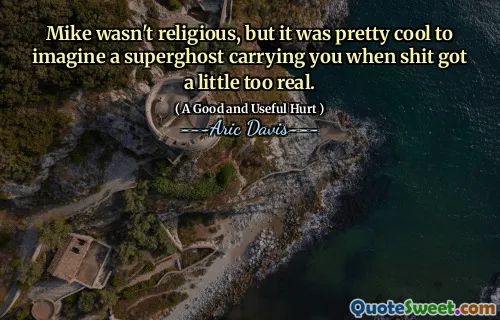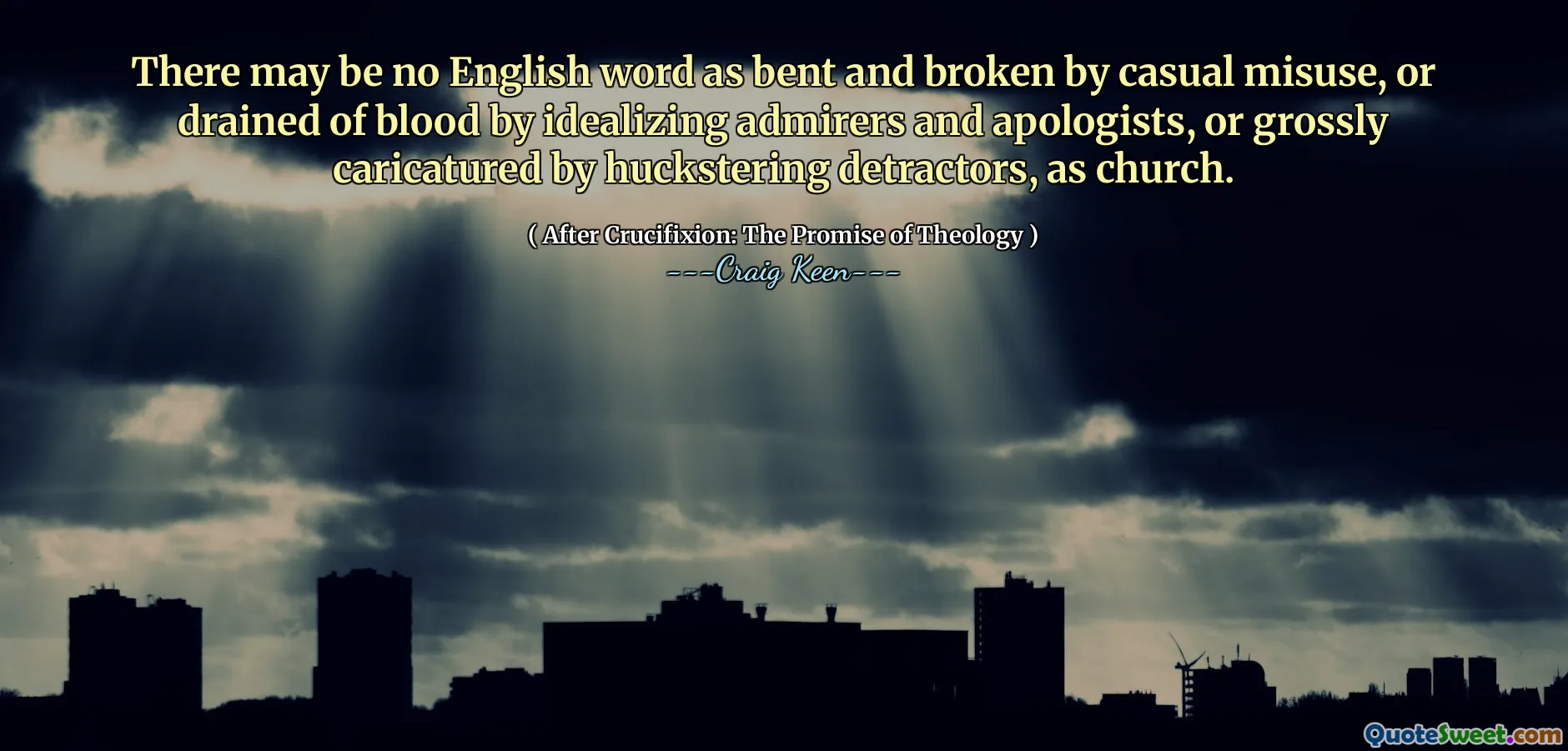
There may be no English word as bent and broken by casual misuse, or drained of blood by idealizing admirers and apologists, or grossly caricatured by huckstering detractors, as church.
The quote poignantly underscores the malleability and often distorted perception of the concept of "church" in the societal consciousness. The term itself, deeply rooted in spiritual, communal, and doctrinal significance, has been subjected to various forms of misinterpretation and misuse over centuries. Casual misuse dilutes its sacredness, reducing a profound institution to a superficial symbol or a mere building. When admirers and apologists elevate the church to an unreal standard, they might inadvertently drain it of its human and historical complexities, bestowing upon it an idealized perfection that overlooks its flaws and contradictions. Conversely, caricatures by detractors tend to portray the church as a hypocritical, corrupt, or oppressive entity, often ignoring its positive contributions, such as community service, moral guidance, and fostering faith. This conflicting treatment transforms the word "church" into a battleground of perceptions, each extreme bending or distorting its true essence. Reflecting on this, it's essential to recognize that institutions like the church are inherently human — flawed, noble, evolving, and deeply intertwined with individuals' hopes, fears, and convictions. The discourse around the church must go beyond simplistic binaries and acknowledge its complex nature. Only then can the true spirit behind the word be appreciated, understood, and perhaps restored from the distortions cast upon it by mischaracterizations and idealizations alike. This quote compels us to think critically about the labels we assign and the narratives we construct, urging a more nuanced view of such a complex and meaningful concept.

